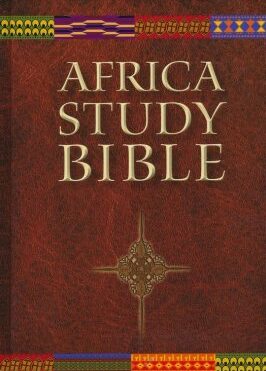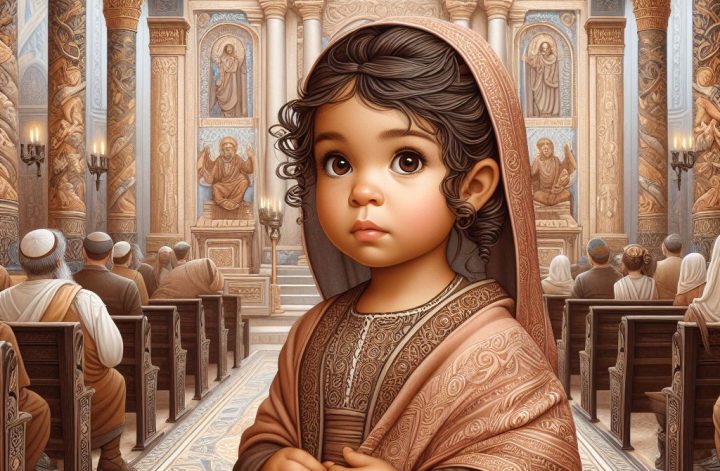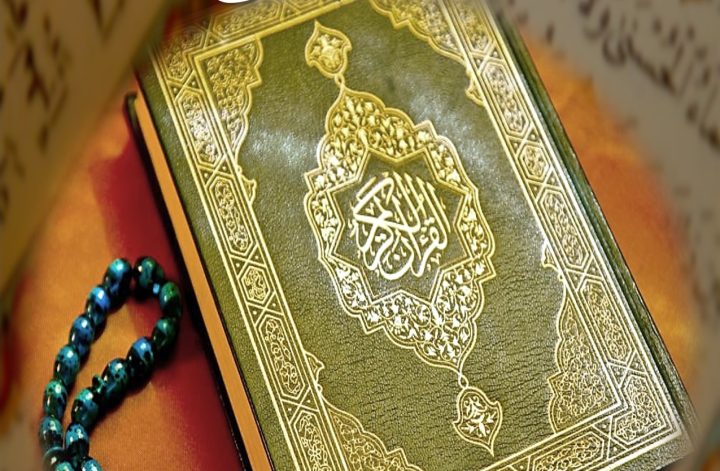The message is simple: use the Africa Study Bible in your studies, for it will immensely help in exposing colonial ideals masquerading as Christian virtues and also arm you with knowledge of Africa’s colossal contributions to the faith.
Some years ago, while assisting in a Sunday School, a lady joined our class. She was a little above the age bracket that I was used to seeing, but she was calm, respectful, and teachable. I do not recall the lesson of the day, but it must have had a citation from the Pentateuch which mentioned ancient places like Cush or Put. Shortly after the reading, this lady raised a question: Why do we, black Christians in black churches, read passages having to do with Africa in such a hurry? On that occasion, her point was that we read through “Cush” or “Put” without mentioning that these terms have real referents that still exist today. We had read the passage like many Christians do the genealogy passages of the bible. After the class, I went to thank the lady for her contributions that day. It was then that I noticed she had an unusual bible with a trademark African design on its covers.
Some years later, I attended a conference featuring African-American theologians and Bible scholars. These scholars addressed several theological issues affecting the black community in America. During the event, some scholars volunteered the information that they required the Africa Study Bible in their courses. They stressed that the work was not perfect but was highly valuable. I distinctly recall clearly understanding what they had just said—that there was a very useful study bible they think students should know about. Yet, I did not so much even look into it any further.
Why would anyone interested in decolonizing Christianity not even check out a study bible put together by over 300 African scholars from tens of African nations? It took a while before I realized it, but it is because I am yet recovering from mental colonialism. I probably subconsciously dismissed it the moment I heard Africa in the title.
Some weeks ago, my wife picked up a copy of the Africa Study Bible and has been consistently studying from it since. I saw the bible lying around, but even this was not enough reason for me to check it out. In fact, when I noticed that the work used the New Living Translation text, as opposed to my preferred New International Version or English Standard Version, I had even more reasons to not associate with it. But it all changed a few days ago.
Doing independent research, I needed to study the texts of two bible passages for similarities late one night. Right there in front of me was my wife’s copy of the study bible. I thought to myself, “well, it won’t hurt to do my reading from this Africa bible for now.” So, I picked it up to read. My goodness, it stunned me. This is a truly top-notch scholarly work that emphasizes the gargantuan roles that Africa has played in both Judaism and Christianity. Indeed, this work may very well be the beginning of a fresh wave of massive African roles in world Christianity considering the shifting demographics of the world church.
Written primarily for English-speaking Africans about whom studies show do not always fully understand the American or British subtleties in standard English translations of the Bible, the Africa Study Bible steps in to fill that void. But it does not just fill a void. It brings in the wealth of diverse distilled wisdom that the continent of Africa possesses. Some unique contributions of the work are the special features like “Learn,” “Proverbs and Stories,” and “African Touch Points.” In these portions of the work, authentic African realities are used to bring Scripture to life.
For instance, the first occurrence of “Learn” is in the creation story in Genesis. Here, the editors surveyed various African cosmological beliefs which are very similar to the biblical account, concluding that the “stories of a creator god who existed before the world began point to an innate understanding among Africa’s people groups that there is a supreme being responsible for all existence—the very source of life.” Such comparative explications can enrich the experience of a new African believer in Christ. Among all the special features of the study bible, “Learn” also displays scholastic treatments of knotty issues.
The editors used the “Proverbs and Stories” to display hundreds of proverbs, folklore, and sayings from African nations and sub-nations. This, by itself, in my estimation, accounts for more than half the value of the work. It is an immense treasure to have several African proverbs and folklore collected in one work. This feature can help redeem an African believer’s self-esteem that colonization Christianity has eroded. Here are some featured proverbs:
A Kinyarwanda proverb from Rwanda says:
“He who is protected by the leopard quietly draws water.” As the editors explained, “Big, strong animals control resources such as water and pasture. Small animals have limited access unless they have the favour of a big animal such as a leopard… . The leopard or Ingwe is often a symbol of God.” (Culled from the “Proverbs and Stories” associated with Psalm 28.)
Here is a proverb from the Umbundu of Angola:
“If you are up in a tree, do not say, ‘I am a beehive,’ but rather say, ‘I am a person.’” This saying teaches “that you should always take responsibility for your actions, even when you are in difficult circumstances.” (Culled from the “Proverbs and Stories” associated with 1 Samuel 15.)
The Dendi people from Benin teach thus:
“What you do not like, do not give to your friends.” (Culled from the “Proverbs and Stories” associated with Matthew 7.)
A Tonga saying from Malawi says:
“Kneeling you eat with others; keep standing and you eat nothing.” As the contributors note, “This tells us that whoever humbles himself will receive provision and much honour. In traditional Tonga society, young people knelt before elderly people to show respect.” (Culled from the “Proverbs and Stories” associated with Obadiah 1.)
A popular Mòoré proverb in Burkina Faso states:
“One strike alone does not kill a snake, but rather a repetition of strikes.” As the contributors explained, “the ‘snake’ represents any subject or situation that requires steadfastness to ‘strike it’ repeatedly”. (Culled from the “Proverbs and Stories” associated with Luke 18).
As the examples above suggest, the Africa Study Bible is a treasure house of African sayings and stories, devices that have been used to teach morals for generations on the continent.
Of the many “African Touch Points,” I like very much the one titled “Sons of Ham” associated with Genesis 10. Here, the editors of the Study Bible succinctly debunked the Ham Hypothesis, one of several ad hoc European inventions used to justify the enslavement of Africans. In the biblical narrative, Ham sinned against his father leading to a curse on one of Ham’s sons, Canaan. Interestingly, however, it is precisely Canaan among the children of Ham who never settled on the continent of Africa. As the editors note, “As Africans, we are not descendants of Canaan, but of Ham’s other sons—Cush (Egypt and Sudan), Mizraim (Egypt) and Put (Libya or Somalia).” This piece also features a quote from the legendary African-American preacher and theologian, Dr. Martin Luther King, Jr, fiercely critiquing some White American Christians of his days who defended segregation, one of many political children of American racism, based on the bible. These special notes can arm an African believer against many lingering colonial ideologies in Christendom.
My favorite feature of the Study Bible by far is the pictorial writing titled “A Narrative Timeline of God’s Work in Africa” which features Africa’s continuous presence throughout the whole Bible and several succinct histories. The number of details collected in the pieces of writings here is fascinating. First, the contributors point out that 1000 years before Abraham was born, Africa already had thriving empires. When God would later make a people for himself through Abraham, two of the 12 tribes, Manasseh and Ephraim, would be properly 50 percent Africans. During the post-Apostolic age of the Church, Africans would also play very critical roles. For instance, the world’s first Christian institution or center for biblical studies and theology was founded in Alexandria, Egypt. The head of the institution at about 180 AD was Saint Pantaenus. Influential African theologians and church fathers like Clement of Alexandria would later receive their training at this school.
The value of the Study Bible to an African believer is incalculable. This bible will educate any believer against many colonial ideologies prevalent in the Church today. For example, an influential Nigerian recently ignorantly asserted in a Social Media post that the idea of a Holy Trinity is foreign to the bible and was an invention of Europeans. Leaving his ignorance about the doctrine being inherited from Judaism alone, this individual would have known that Europeans did not synthesize the doctrine of the Holy Trinity had he studied with the Africa Study Bible. As Adonijah Ogbonnaya points out, “Africans shaped the fundamental principles of Christian theology: Trinity, Incarnation, the divinity of our Lord Jesus Christ, and the full theological understanding of the Person of the Holy Spirit.” The doctrine of the Holy Trinity is but one of many cornerstone Christian doctrines that African theologians formulated.
I cannot recommend this bible enough. Whether you are a Black, White, Yellow, Pink, or Brown Christian, this study bible will immensely benefit you. For a white reader, the Africa Study Bible will reveal the extent of colonization and the systematic erasure of African contributions to the faith.
Seeing that the hugely influential General Overseer of the Redeemed Christian Church of God, Pastor E.A. Adeboye, wrote a glowing review of the Africa Study Bible, I hope that he also recommended it to his people. Indeed, I hope the church purchases the bible or subsidizes the price for members of the church.
Works Cited
Africa Study Bible. Oasis International Publishing, 2016.
Ogbonnaya, Adonijah O. “The African Study Bible: A Gift to the Church.” Africa Study Bible. Oasis International Publishing, 2016, pp. A2-A3.




